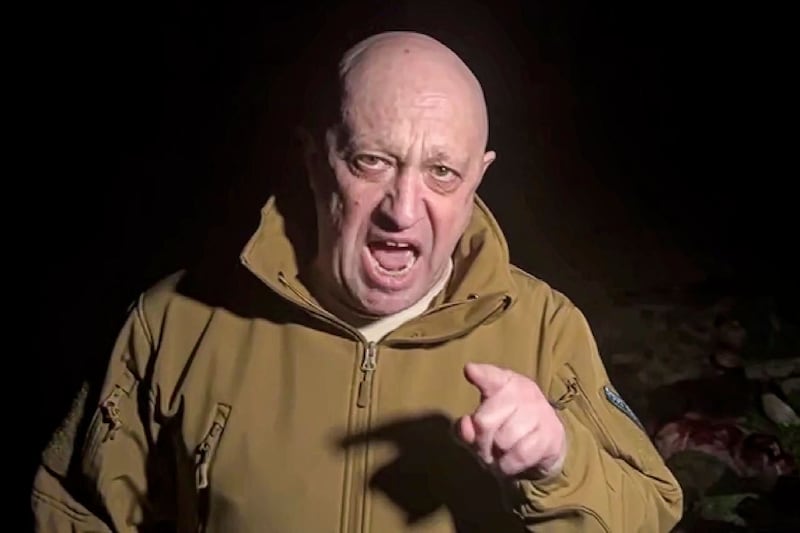Vladimir Putin has said he offered mercenaries from the Wagner private military company the option of continuing to serve as a single unit under the same officer when he met them five days after the group’s abortive revolt last month.
In remarks to the business daily Kommersant published on Friday, the Russian president described a Kremlin event attended by 35 Wagner commanders, including the group’s chief Yevgeny Prigozhin, on June 29.
Mr Putin said he talked to them about their actions in Ukraine, their mutiny — which he denounced as an act of treason in a televised address to the nation — and offered them alternatives for future service.
He told Kommersant that one option would see Wagner keep serving under the same commander who goes by the call name Grey Hair, who has led the military company’s operations in Ukraine for the past 16 months.

“All of them could have gathered in one place and continued to serve,” the president said, “and nothing would have changed for them. They would have been led by the same person who had been their real commander all along.”
Mr Putin said many Wagner commanders nodded in approval when he made his proposal but Mr Prigozhin, who was sitting in front and did not see their reaction, quickly rejected the idea, responding that “the boys won’t agree with such a decision”.
The president did not mention where and in what numbers Wagner could be deployed, or what proposal the commanders eventually accepted, if any.
He has previously said that Wagner troops had to choose whether to sign contracts with the Russian Defence Ministry, move to neighbouring Belarus or retire from service.
The Russian leader has previously said that Mr Prigozhin’s company has received billions from state coffers, and investigators would look at whether any of the funds had been stolen, a warning to Mr Prigozhin that he could face financial crime charges.
State-controlled media have posted videos and photos of Mr Prigozhin’s opulent mansion which showed stacks of cash, gold bars and fake passports.
The images appeared to be part of the authorities’ smear campaign against the Wagner chief, who has postured as an enemy of corrupt elites even though he has owed his wealth to Mr Putin.
The president also noted that Wagner has operated without legal basis.
“There is no law on private military organisations. It simply doesn’t exist,” he told Kommersant, adding that the government and the parliament have yet to discuss the issue of private military contractors.
During the revolt that lasted less than 24 hours on June 23-24, Mr Prigozhin’s mercenaries quickly swept through the southern Russian city of Rostov-on-Don and captured the military headquarters there without firing a shot, before driving to within about 125 miles of Moscow.
Mr Prigozhin described the move as a “march of justice” to oust Russian defence minister Sergei Shoigu and armed forces chief General Valery Gerasimov, who had demanded that Wagner sign contracts with the Defence Ministry by July 1.
The mutiny faced little resistance and fighters downed at least six military helicopters and a command post aircraft, killing at least 10 airmen. Mr Prigozhin called his mercenaries back to their camps after striking a deal to end the rebellion in exchange for an amnesty for him and his mercenaries, and permission to move to Belarus.
While the fate of Mr Prigozhin and the terms of the agreement remain cloudy, the Defence Ministry said on Wednesday that Wagner was completing the handover of its weapons to the Russian military.








